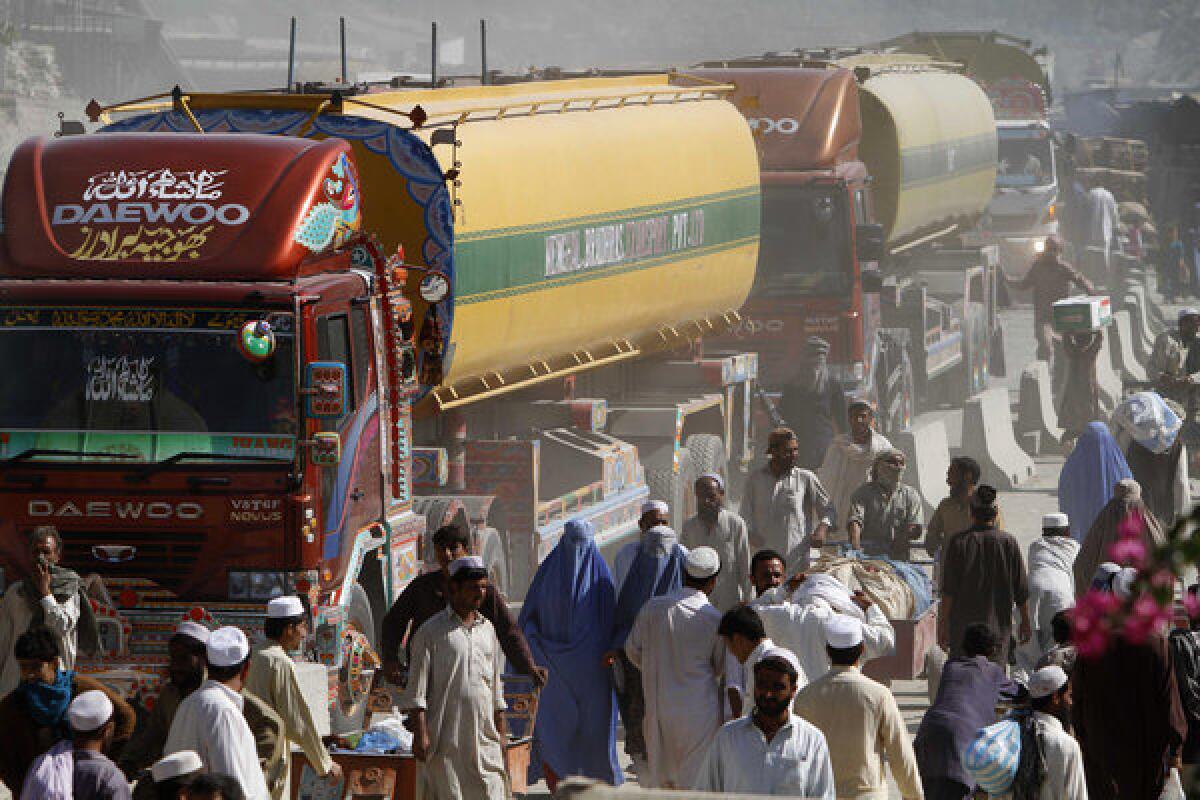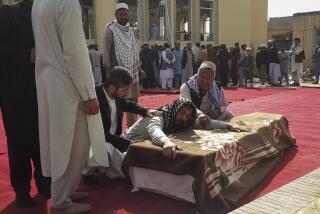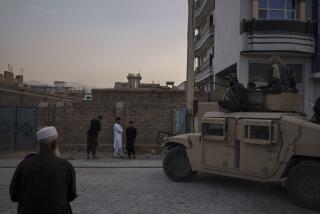New sticking point between U.S. and Afghanistan: fuel supplies

- Share via
KABUL, Afghanistan -- A simmering dispute between the U.S. and Afghan governments spilled over Sunday into a spat about whether U.S. and coalition forces have deliberately withheld fuel supplies from Afghan army and police units.
A statement posted Sunday night on the website of Afghan President Hamid Karzai accused the United States of “applying pressure and creating dependency” by cutting off fuel supplies to two or three army and police units. It quoted Afghan National Security Council officials as saying the alleged cutoff of “fuel and support services” had hampered security force operations.
The NATO-led International Security Assistance Force, in a brief statement late Sunday night, denied that any fuel to Afghan forces had been cut off. The Afghan military, which took over combat operations last summer from ISAF forces, still relies on the coalition for fuel, vehicles, logistics and other supplies.
“We continue to process all [fuel] orders as soon as they are received” from Afghan National Security Forces, the ISAF statement said. “We remain committed to supporting our ANSF partners and will continue to do so.”
Karzai said his security council, in a meeting Sunday, considered the fuel issue “a pressure tool used by the United States until Afghanistan ignores its own conditions” and signs a proposed post-2104 security agreement with the United States. The statement accused the U.S. of acting “contrary to their previous commitments of a spirit of cooperation.”
Karzai is locked in a political showdown with the United States over his refusal last week to sign the security deal despite agreeing earlier to the text of the proposed pact. Karzai has laid down several conditions, among them an immediate end to U.S. military raids on Afghan homes and airstrikes against insurgents that accidentally kill civilians.
According to the United Nations, Taliban and other insurgents are responsible for the vast majority of civilian casualties in Afghanistan.
Karzai, whose relationship with the United States has deteriorated since he accused American officials of scheming to undermine his presidential campaign in 2009, has said he will not sign the 10-year deal until after the Afghan presidential election in April. The pact would allow for U.S. military trainers and counterterrorism forces in Afghanistan after combat troops withdraw at the end of 2014.
Many Afghan politicians, including former members of Karzai’s government, have accused him of putting the nation’s security at risk in order to remain politically relevant as he enters a lame duck period. By law, Karzai cannot run for another term.
Collapse of the agreement would mean an end to billions of dollars in military aid to Afghanistan and probably would trigger significant cuts in reconstruction and development money that fuels the aid-dependent Afghan economy.
The terse war of words Sunday, waged in dueling official statements, reflects heightened tensions between the two governments as they approach an end of the year deadline for signing the agreement. U.S. officials have said they and their NATO partners will not be able to plan for a post-2014 military presence if the agreement is not signed by the end of the year.
A grand council of influential Afghans convened by Karzai unanimously recommended last month that he sign the agreement by Dec. 31.
ALSO:
Ukraine: Boxer defuses dangerous confrontation in Kiev
China launches rocket with its first moon lander and rover
Veteran’s detention in North Korea highlights wartime guerrilla unit
More to Read
Sign up for Essential California
The most important California stories and recommendations in your inbox every morning.
You may occasionally receive promotional content from the Los Angeles Times.











